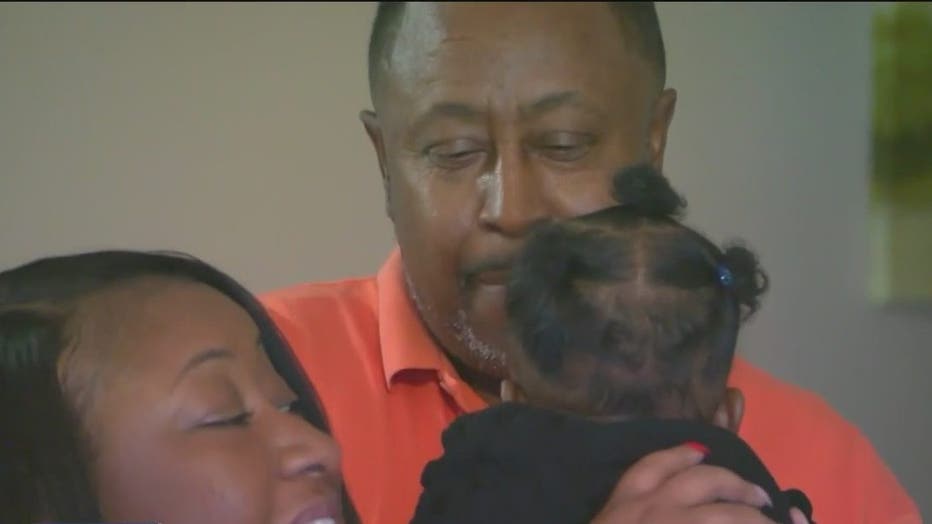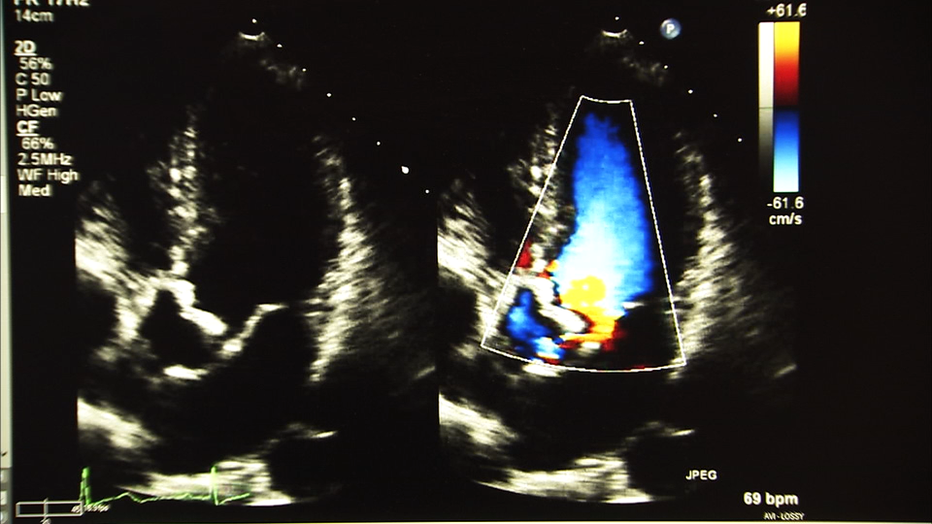Heart surgeon discusses options for patients with severe heart failure

Heart pump, transplation may be options for advanced heart failure patients
About six million Americans are living with congestive heart failure. In the earlier stages, it can be treated with medicine and lifestyle changes, but those with advance heart failure may need a more aggressive approach.
ATLANTA - About six million Americans are living with congestive heart failure, a condition in which their heart is no longer able to pump properly, leaving it unable to maintain with the workload of supplying oxygen-rich blood to the body.
For those with severe heart failure, medication and lifestyle changes may no longer be effective.
James Craft of Hartwell, Georgia, started experiencing signs of heart failure about 5 or 6 years ago, feeling fatigued and out of breath.
When his condition progressed, doctors implanted at pump known as a left ventricular assist device, or LVAD, in July 2021.

Craft is hoping it will shore up his failing heart until he can get on a waiting list to get a donor heart.
However, because he has developed type 2 diabetes, he says, he says, he is off a donor heart waiting list for now.
"So, if I could get to the day when everything is better, the diabetes is down, the weight is down, I can be put back on," Craft says. "On a scale of 1 being, "'t's going to happen, you're going to get it, you're green,' I'm 4 or below at this particular point."
Dr. Ezequiel Molina, surgical director of the heart transplant and mechanical circulatory support program at Piedmont Atlanta Hospital, helps advanced heart failure patients navigate whether to choose transplantation or an LVAD, which takes over pumping for the left side of the heart, which Molina says is more prone to failing.
"The newer pumps actually work with continuous flow," Molina says. "It's like when you open the faucet, and you see the water run continuously. That is how this is how the current pumps work. And, this has allowed these pumps to be more durable, they can last for decades now."

Last year, Dr. Molina says, about 3,000 Americans received a ventricular assist device, and about 4,000, a record for the US, underwent a heart transplant.
If you have a choice between the two, he says, go with transplant surgery.
"The best therapy is clearly heart transplantation, simply because affords the better, the better survival," Dr. Molina says. "When you get a heart transplant, your average survival is approximately 13 years. So, you have a 50/50 chance at 13 years of being alive with a transplant. With the LVAD, it's a little bit less, about 6 years right now, with the current technology."
Molina says the pumps are a better option for people who are older or have chronic medical conditions that can complicate a transplant.
The ventricular assist devices have improved significantly over the past 20 years, he says, and can be used either as a bridge to a transplant, to buy patients time to find a donor heart, or as a long-term treatment.
"So, patients will continue living with that pump for the rest of their lives., Molina says. "Typically, these are older patients or patients with a history of kidney disease or very severe diabetes, or they have cancer, and they are not good transplant candidates."

